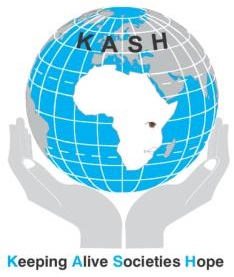Strengthening Partnerships among Non-State Actors and Citizens to Enhance Citizen Participation in Governance (Husika Project) in Kisii and Nyamira counties
The Husika Project, implemented by Keeping Alive Societies’ Hope (KASH) with support from USAID through the Agile Harmonized Assistance for Devolved Institutions (AHADI) program, was a seven-month intervention (July 2018 – March 2019) in Kisii and Nyamira counties. Its goal was to strengthen citizen and Non-State Actor (NSA) participation in devolved governance, particularly in the Public Expenditure Management (PEM) cycle. The project specifically targeted dairy farmers in Kisii and tea farmers in Nyamira to increase awareness of their rights and responsibilities in county governance.
The project was designed around activities that fostered civic education, mobilization, and engagement in governance. Key interventions included stakeholder entry meetings, situational analyses of civic education efforts, review and contextualization of civic education curricula, training of Trainers of Trainers (TOTs), purpose-driven civic education forums, radio talk shows, and development of simplified county documents. An additional component involved mobilizing citizens to actively engage in county processes such as budget hearings and development planning.
Through these interventions, the project achieved significant results. Sixty-five TOTs were recruited and trained across the 65 wards of Kisii and Nyamira, each tasked with conducting monthly civic education forums. Collectively, they facilitated 315 forums, reaching 14,797 citizens (7,132 female and 7,665 male), surpassing the target of 9,750. The forums covered themes such as devolution, public participation, and the budget process, equipping citizens with practical knowledge on how to petition, submit memoranda, and monitor government projects.
Mass outreach was also achieved through three radio talk shows broadcast on Kisii FM, estimated to have reached over 140,000 people. The broadcasts demystified the PEM cycle, clarified citizens’ constitutional rights, and encouraged participation in county decision-making. Citizens demonstrated increased capacity to engage: 15 memoranda and petitions were submitted in the two counties, influencing policies such as the Kisii County Finance Bill 2018 and Nyamira’s County Integrated Development Plan (2018–2022). Community Action Teams (CATs) emerged organically in several wards, taking responsibility for following up on public projects. Notably, in Nyamira’s Gachuba Ward, citizens successfully petitioned for the county government to upload critical planning documents online. In other cases, citizen pressure led to improved project quality, such as the reconstruction of a stalled market in Ibeno Ward.
Despite successes, the project faced challenges, including high community expectations for incentives, reluctance of state agencies to release draft documents, and political interference from local leaders who viewed civic educators as rivals. Nonetheless, KASH managed these issues by emphasizing community ownership and fostering constructive relationships with county officials.
The project’s sustainability strategy relied on building local capacity. TOTs drawn from the community were equipped to continue civic education beyond the project’s lifespan. Citizens gained skills in drafting petitions and memoranda, forming CATs, and demanding accountability. These community-driven mechanisms are expected to sustain advocacy and oversight.
Overall, the Husika Project demonstrated the transformative potential of purpose-driven civic education in deepening citizen participation in devolution. By empowering farmers and grassroots groups, it fostered a more informed citizenry capable of influencing governance processes, promoting accountability, and ensuring county services reflect community needs.
